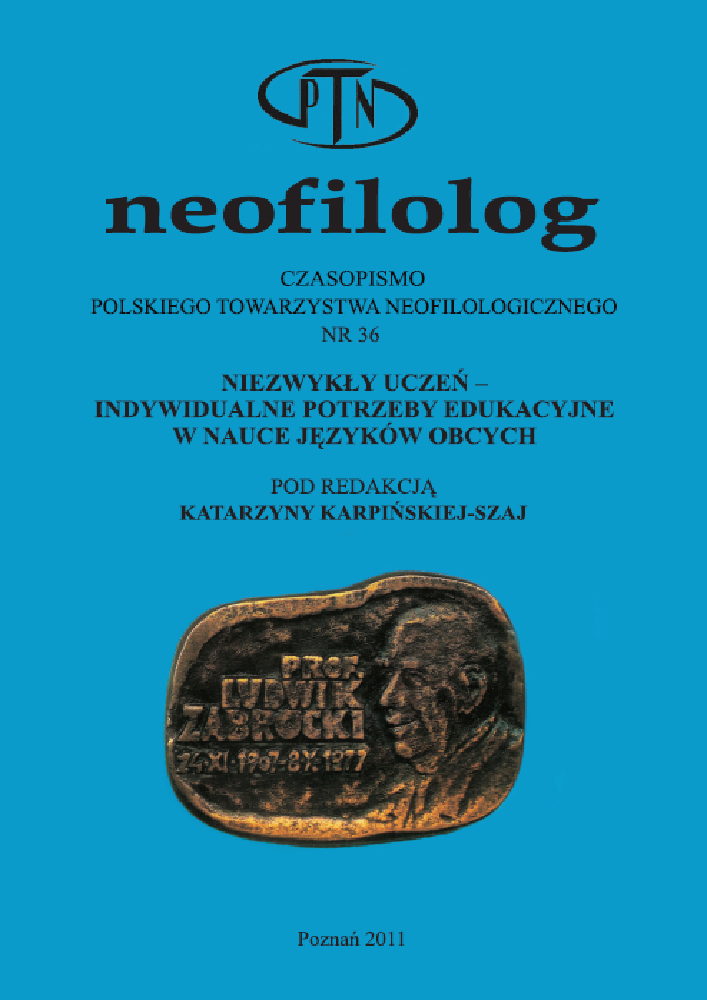No. 36 (2011)
Published 2019 September 24
Extraordinary student – individual educational needs in language learning
pod redakcją Katarzyny Karpińskiej-Szaj
Full Issue
PDF (Język Polski)
Słowo wstępne
WYZWANIA DLA EDUKACJI W RÓŻNORODNOŚCI
9-19
21-36
37-53
UCZNIOWIE Z NIEPEŁNOSPRAWNOŚCIĄ W KONTEKŚCIE NAUCZANIA JĘZYKÓW OBCYCH
67-80
81-98
99-119
120-136
137-156
157-171
173-185
187-201
DYSLEKSJA A NAUCZANIE JĘZYKÓW OBCYCH
217-227
229-241
243-253
255-270
STYMULOWANIE ZDOLNOŚCI JĘZYKOWYCH
283-299
301-318
Book reviews
SPRAWOZDANIA I KOMUNIKATY
335-337
